- Home
- Sarah Woodbury
Exiles in Time (The After Cilmeri Series) Page 4
Exiles in Time (The After Cilmeri Series) Read online
Page 4
“And what does it mean to you?” David said.
“To do what is right, regardless of the personal cost,” Callum said.
“Most people live only for themselves and thus have no honor,” David said. “When a man thinks about feeding his physical wants and not his heart for too long, one day he wakes up with his soul as hollow as his stomach and a lot harder to fill. That’s not been your problem, however.”
“Do I have a problem?” Callum said, his palms sweating at how close David was to the truth of what was inside him.
“I wasn’t there—I don’t know what you went through—but my wish for you is that you can find something here, or someone, that can help you fill that hollow space your war carved out of you.”
“And you think I might find that in Scotland?” Callum said.
“I don’t know,” David said, “but it’s a place to start.”
As Callum watched King David join his wife and family in the hall, it occurred to him that he wasn’t the only one who’d come a long way since Chepstow.
Chapter Two
Callum
It had taken days longer than Callum had hoped it might to reach the north of England. Edinburgh, located on the east coast of Scotland, was over four hundred miles by road from London. They weren’t there yet and wouldn’t be for a few more days. They had been forced to ride at a leisurely pace thanks to Kirby, who was a poor horseman and had insisted on riding in a carriage instead of on horseback. It felt to Callum as if they’d plodded their way across England, journeying for ten hours each day just to travel the allotted thirty miles.
Callum’s meager consolation was that he was sleeping better than he had at Kings Langley and the weather was pleasant.
Callum had made it his business to find out as much as he could about his traveling companions, most of whom were purely military men, knights with small estates or men-at-arms rather than diplomats. Their job was to protect Kirby, who from his passing comments neither trusted nor liked the Scots. Callum hadn’t been an earl long enough to acquire a personal guard himself. Before Callum left Kings Langley, David had promised that when he returned from Scotland, Callum had leave to travel to Shrewsbury and figure out what it meant to be its lord.
Samuel, doing his duty, had made friends with most of the men, including Liam, Kirby’s cousin. Liam’s mother had married a Scotsman (against the wishes of her family, naturally). While the mother had remained the black sheep of the family, Kirby had brought Liam back into the fold and had included him on this journey because he spoke Gaelic. Samuel, Liam, and Callum had found that the first few evenings of their journey passed more pleasantly in each other’s company, even if an earl wouldn’t normally be seen hobnobbing with underlings such as they. That was one of the benefits of being an earl, Callum had found. He could do whatever he damn well pleased, not that he wouldn’t have anyway.
Four days out of London, they stopped at the royal castle of Skipton. Waiting for them at the castle was twenty-eight-year-old James Stewart, Guardian of Scotland and its Lord High Steward, a title he’d inherited from his father. With him came a company of twenty men and Baby Bruce, otherwise known as Robbie, his fourteen-year-old squire. James had come to greet King David, still thinking he was the leader of the company. He stayed despite the king’s absence. He’d been relieved by it, in fact, just as David had hoped.
As they made their way further north, heading for Carlisle, Callum tried to get at James’s purpose in joining his little band with theirs, whether to influence the outcome of the mediation (possibly in Grampa Bruce’s favor) or merely to scope out the tenor of the delegation. Either way, Kirby welcomed James cordially and took Robbie under his wing. Their conversations tended to be one-sided, however, with Kirby pontificating in French and Robbie listening. From the bits Callum had overheard, Kirby talked mostly about the glories of his recent trip to France—particularly the fine wine he’d had the opportunity to drink—and lectured Robbie on how to be a better squire.
If Kirby was aware of the danger of favoring one claimant to the Scottish throne over another, he didn’t show it. He appeared to be so prejudiced against all Scots that he might soon offend them all. Callum wished David had chosen almost anyone else to lead the delegation. Perhaps King David had misread the tenor of Kirby’s distrust of the Scots, or the churchman had hidden it better back in London. Callum wondered what Kirby really thought of David, a barbaric Welshman, even if he was England’s king.
Then again, maybe David did know exactly who and what Kirby was, and that was why he had included Callum in the company.
Their last stop before entering Scotland was at Carlisle. Taking up nearly ten acres, the castle sat on rising ground at the northern end of the city. David had given Callum the rundown on the castle as part of his briefing, with the added remark—mentioned at the end of their conversation and with amusement—to remember him to Sir John de Falkes, the castellan. A couple of years ago, the man had locked up David and Ieuan. They’d escaped with the help of Falkes’s nephew, Thomas. Falkes’s soldiers had subsequently chased David and Ieuan to the coast and they’d gotten away only by time traveling to the modern world.
Although Callum was going to do as the king asked, he was pretty sure that David was far more amused by this potential conversation than Falkes would be.
Robbie, riding alongside Callum, waved his hand in the direction of Carlisle, indicating it and the countryside around it. “Our people have raided these lands for centuries. They should be ours.” Carlisle had once been a Roman city, standing as one of the last bastions of ‘civilization’ before the wilds of Scotland. Hadrian’s Wall stretched seventy miles east from the city.
Callum glanced at the boy, uncertain if he was boasting or merely stating what he believed to be fact. He opted to respond to Robbie’s words as if they were the latter, though the fire in the young Scot’s eyes gave Callum pause. “War has been a way of life in these lands since before the Romans came.”
Robbie clenched both fists around the reins. “My grandfather would like to avoid war this time.”
“But not you?” Callum said. “You would fight?”
James made a calming motion with his hand, but at a nod from Callum, he arrested his movement. Callum wanted to know what Robbie thought. The boy was fourteen, the same age David had been when he’d come to Wales in 1282, and therefore Robbie had reached manhood with the right to a man’s opinions. Besides, if history played out here like it had in Callum’s old world, Robbie would be King of Scotland someday.
“Of course!” Robbie said.
“King David would like to avoid bloodshed too,” Callum said.
“If King David chooses Balliol for the crown, he will be making a mistake,” Robbie said. “It might be necessary to show him the error of his ways.”
James couldn’t keep silent any longer. “Robert.”
“My grandfather would make a good king, better than that sop Balliol. He is an old man,” Robbie said.
“And you are too hotheaded for your own good.” James tipped his head at Callum. “Pardon my squire, my lord. He sees only what is in front of him.”
That might be true, but Robbie’s outspokenness only made Callum more interested in hearing what he had to say. “What is it about Balliol that you don’t like, other than his age?” The fourteen-year-old’s perception of age had little to do with reality, since at forty Balliol wasn’t exactly decrepit, even for the Middle Ages.
“He wavers,” Robbie said.
“Does he?” Callum kept his tone as unconcerned as possible. James didn’t attempt to stop his squire from speaking anymore, just gazed stonily ahead. As Guardian of Scotland, it was his role to remain neutral in the current dispute, but his family was closely related to the Bruces. Callum’s crash course in Scottish history had told him that in the old world, James had supported his squire’s claim to the throne of Scotland in the war against King Edward.
“He lacks fire and thinks the crown is his by righ
t of birth when it is my grandfather’s.” Robbie pushed out his lower lip, making himself look more like a twelve-year-old than the man he wanted to be. “And Balliol is not a warrior.”
That was probably the most damning thing the boy could think to say about a Scottish nobleman, or any nobleman for that matter. Hadn’t Callum found acceptance into this society far easier because he knew what it meant to be a soldier? What would he have found if he’d come to the Middle Ages having spent his life as a computer technician? Or if he hadn’t been blessed with a tall stature and broad shoulders? How would his mail armor have hung on him then? Callum didn’t want to think about that. He was having a hard enough time as it was.
“Your leaders, with King David’s help, will make the right decision,” Callum said.
Robbie’s chin jutted out in defiance. “The people should decide. If they were given a chance they would choose my grandfather.” Maybe Robbie really did mean the common folk—the men anyway—when he said ‘people’, but Callum doubted it. Real democracy for Scotland was centuries away. Regardless, Robbie would have been disappointed to learn that in the old world, the consensus among the barons of Scotland had been for Balliol.
The company finally passed through Carlisle’s southern gate following the old Roman road. Once inside, they had to ride the length of the city before they reached the grassy expanse that separated the castle gate from the city walls. A grassed moat that could be flooded by the nearby river protected the inner gatehouse. They crossed it without difficulty and entered the castle’s outer bailey, which was the size of a football field. The sight of Carlisle had Callum comparing yet again a living, breathing castle to the ruin that was Chepstow in the twenty-first century. It was like comparing a Ferrari to a Chevy Nova that had been stripped for parts.
Sir John de Falkes himself strode from underneath the inner gatehouse tower. Four men paced behind him. Kirby got down from his carriage and came forward, accompanied by two fellow churchmen and three English noblemen, all of whom David had perceived to be relatively impartial towards the Scottish. Falkes greeted Kirby in French and together the men headed into the inner bailey.
The outrageous snub left Callum laughing to himself. Kirby wasn’t obsequious, Callum had to give him that. The bishop, though he had accepted Callum’s presence readily enough, hadn’t ever given him the attention his title merited as the newly designated Earl of Shrewsbury. At the same time, Callum had endeavored to keep a low profile, not wanting to be viewed as a jumped-up earl even if he was. He found the hierarchy of the medieval world annoying much of the time anyway, and in this case, he wasn’t sorry to be ‘overlooked’. Callum’s job was to snoop around, not sit on display at the high table listening to other men preen and pontificate.
“He didn’t wait for either of you.” Robbie had dismounted immediately upon entering the bailey in expectation of James being invited into the castle. The boy looked up at Callum. “I might have expected such insolence from an Englishman towards a Scotsman, but doesn’t Bishop Kirby know who you are, my Lord Callum?”
“Oh, he does,” Callum said.
“Never you mind, Robbie.” James dropped to the ground beside his squire.
Callum clapped a hand on Robbie’s shoulder. “Listen to your master. It is better to be underestimated. It leaves one’s options open.”
A stable boy took the horses away. At least Callum wasn’t so low as to have to care for his own horse, though he often did because he wanted to. Callum caught Samuel’s eye as his friend led his horse towards the enormously long stable built against the curtain wall. Samuel nodded back. They would meet later to discuss anything of interest they’d learned from their respective sources. Callum turned back to his Scottish companions.
“Am I wrong or did King David, your ancestor, take this castle from the English during his reign?” Callum said to Robbie.
James snorted laughter. “Don’t—don’t get him started again.”
Robbie gave James an evil look and stalked on ahead.
“What about you?” Callum asked James. “You don’t share our young friend’s beliefs or aspirations for his grandfather? Or for yourself, for that matter?”
James stopped walking, allowing Robbie to get another ten paces towards the inner gatehouse. He studied Callum’s face for a moment and then said, “If you are to be of service to your king, you need to understand us. Will you come with me now?”
“Of course.” Curious, Callum followed James to the steps that led to the battlements above the curtain wall that surrounded the castle. A gatehouse tower allowed them to overlook the whole castle and the city. James gestured towards the north. “This is what I believe in. I would die for Scotland without a second thought.”
Callum gazed to where James pointed. On the other side of the River Eden, Scotland stretched before them. Without the A7 highway heading north and a built-up countryside, there was nothing to see but patches of farmland and stands of trees, with hills in the distance. This was good country. No wonder it had been fought over for so long, though even eight hundred years after the Romans had left, the land to the north of Hadrian’s Wall had few settlements.
“I believe in Scotland—a Scotland separate from England. It is my hope that your new king believes in it too,” said James.
“I don’t pretend to know all that goes on in my king’s mind. I can’t speak for him beyond the matter of the succession,” Callum said, “but he has no designs on Scotland for himself.”
“But what of his ancestry?” James’s hands tightened into fists as they rested on the stones of the battlement. “His claim is as real as many who seek the throne, even if through an illegitimate daughter. He is closer by blood to the throne than either Bruce or Balliol.”
Callum sighed. David had told him not to bother denying the documents attesting to Meg’s royal blood if they came up. David would deny them himself as many times as it took for people to accept he was telling the truth, but were Callum to do so, it would look like he was trying to undermine David’s rule.
“Even if some Scottish lords would accept David as king of Scotland, many would not,” Callum said. “He would have to take the throne by force and he doesn’t want a war with Scotland any more than you want one with England.”
“That is what I’d heard.” James gazed straight ahead. “I wasn’t sure if I believed it.”
Callum shrugged. “Before last year, many wouldn’t have believed that the English barons could agree with one another long enough to anoint a prince of Wales as King of England either.”
“His rule was better than a civil war,” said James. “And again, he carries the blood of King Henry in his veins through his mother. My fear is that some of my peers will fear a claim from him, regardless of what he says openly, and begin the war now rather than wait for it to come to them.”
“You know your peers better than I,” Callum said, “but I hope you are mistaken.”
“Regardless, I would not want to see the two thrones united,” said James.
Callum’s mouth twitched, but he restrained his laughter out of deference to James who was perfectly serious. Callum’s lack of interest in history had dogged him since he’d arrived in the Middle Ages, but he, like virtually every child who spent any time in the British school system, couldn’t help but retain one historical tidbit about James: it was his descendants, the Stuarts, who had united the crowns of Scotland and England. James Stewart could become a grandfather of kings.
The evening meal passed as it had in every castle they’d visited so far. Their seventy men were a sizable addition to the population of any castle, but for one night they could be fed and housed without too much inconvenience to the castellan. Falkes and Kirby kept their heads together most of the evening. Watching them, Callum regretted not being included on the dais. Kirby plotted and connived as easily as he breathed. According to David, that wasn’t true of Carlisle’s castellan. Falkes had crusaded with King Edward and had been rewarded with the honor of Carlis
le. He was a military man. It was Callum’s thought that he might speak Callum’s language more than Kirby’s. Callum planned to find out soon if that was true.
Meanwhile, as he had in every place he stayed, he observed the diners in the hall. In the early days, the upside of Callum’s ignorance of the language had meant that he’d had to figure out what was going on around him by watching instead of listening. What Callum had seen was people lying to each other. He’d seen smiles that never reached eyes, shoulders that shifted even as a man nodded agreement, and covert glances between diners who were seated at the opposite ends of a table.
Callum had told himself not to be surprised: Shakespeare hadn’t concocted his stories out of nothing. And it wasn’t that modern people didn’t lie, cheat, steal, and commit adultery. It was just that they didn’t tend to do it under the noses of a hundred other people who were forced continually into each other’s company.
Samuel sat heavily on the bench opposite Callum. “All is quiet.”
“You didn’t really expect the Scots to march on Carlisle today, did you?” Callum said.
“You can never be too careful.”
“What about your lady friend?” Callum said. “Doesn’t she live in the town?”
“She does,” Samuel said.
Callum eyed him. “And?”
“And what?” Samuel said. “Tonight is not the night for me to slip away from the castle to see her. Besides, her uncle watches her closely these days.”
“I would like to see you court her openly,” Callum said. “Her uncle will just have to get over the fact that you’re Jewish.”
Samuel’s brow furrowed. “Men don’t just get over such a thing.”
“Well they should,” Callum said. “Surely King David will vouch for you. That ought to count for something.”
“He has already said he would,” Samuel said.

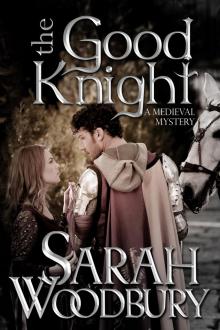 The Good Knight
The Good Knight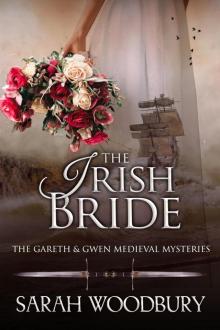 The Irish Bride
The Irish Bride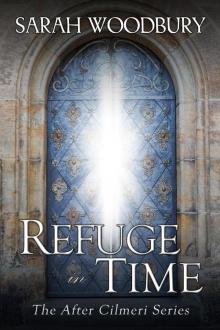 Refuge in Time
Refuge in Time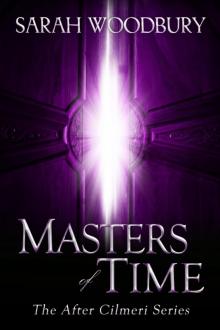 Masters of Time
Masters of Time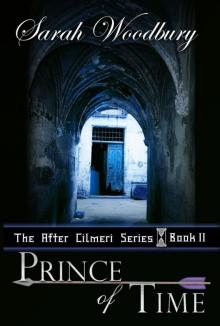 Prince of Time (Book Two in the After Cilmeri series)
Prince of Time (Book Two in the After Cilmeri series)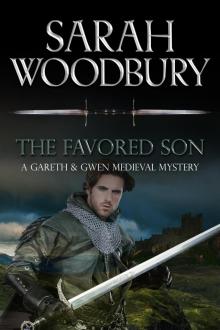 The Favored Son
The Favored Son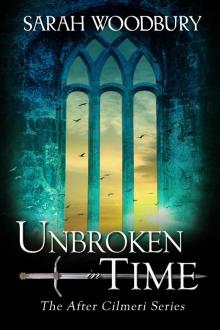 Unbroken in Time
Unbroken in Time![[The Lion of Wales 01.0] Cold My Heart Read online](http://i1.bookreadfree.com/i/03/22/the_lion_of_wales_01_0_cold_my_heart_preview.jpg) [The Lion of Wales 01.0] Cold My Heart
[The Lion of Wales 01.0] Cold My Heart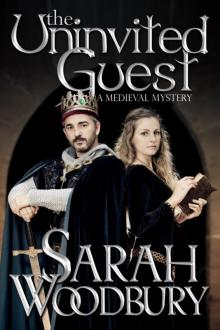 The Uninvited Guest
The Uninvited Guest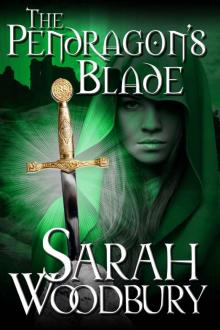 The Pendragon's Blade (The Last Pendragon Saga Book 2)
The Pendragon's Blade (The Last Pendragon Saga Book 2)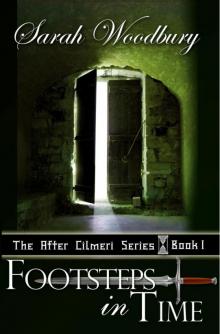 Footsteps in Time
Footsteps in Time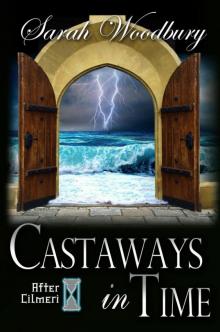 Castaways in Time (The After Cilmeri Series)
Castaways in Time (The After Cilmeri Series)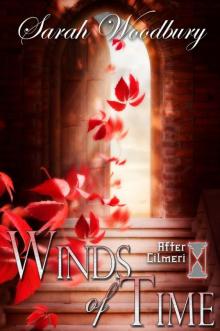 Winds of Time
Winds of Time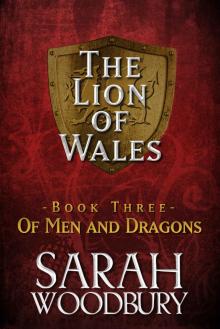 Of Men and Dragons (The Lion of Wales Book 3)
Of Men and Dragons (The Lion of Wales Book 3)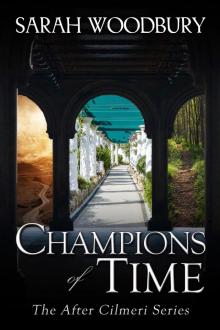 Champions of Time
Champions of Time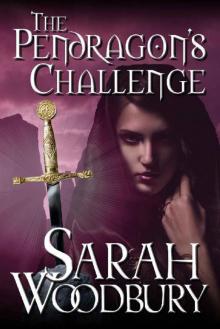 The Pendragon's Challenge (The Last Pendragon Saga Book 7)
The Pendragon's Challenge (The Last Pendragon Saga Book 7)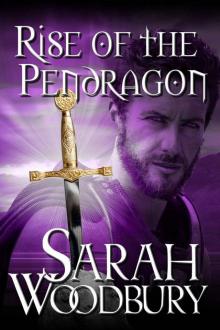 Rise of the Pendragon (The Last Pendragon Saga Book 6)
Rise of the Pendragon (The Last Pendragon Saga Book 6)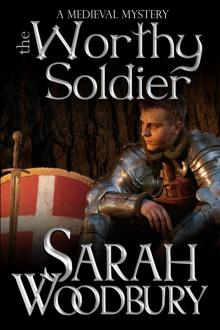 The Worthy Soldier
The Worthy Soldier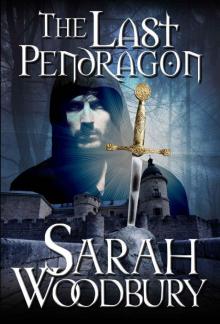 The Last Pendragon (The Last Pendragon Saga Book 1)
The Last Pendragon (The Last Pendragon Saga Book 1)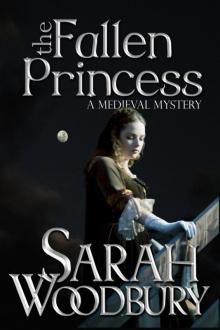 The Fallen Princess
The Fallen Princess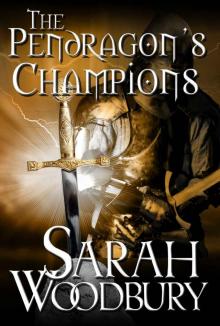 The Pendragon's Champions (The Last Pendragon Saga Book 5)
The Pendragon's Champions (The Last Pendragon Saga Book 5)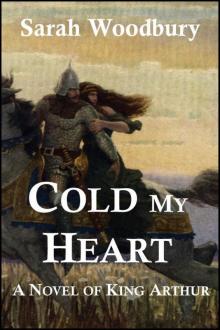 Cold My Heart: A Novel of King Arthur
Cold My Heart: A Novel of King Arthur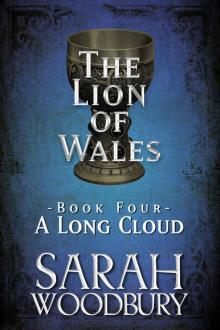 A Long Cloud (The Lion of Wales Book 4)
A Long Cloud (The Lion of Wales Book 4)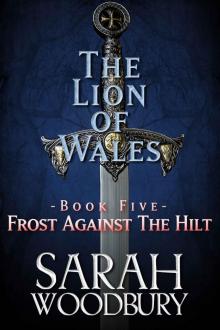 Frost Against the Hilt (The Lion of Wales Book 5)
Frost Against the Hilt (The Lion of Wales Book 5)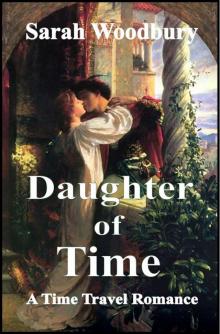 Daughter of Time: A Time Travel Romance
Daughter of Time: A Time Travel Romance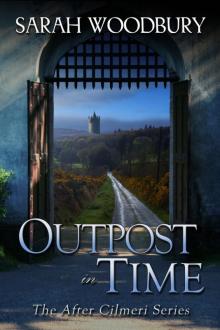 Outpost in Time
Outpost in Time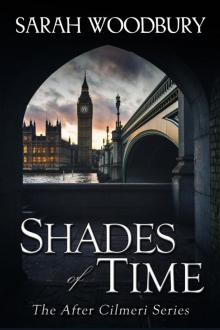 Shades of Time kobo
Shades of Time kobo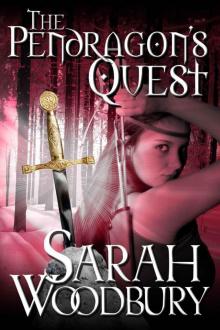 The Pendragon's Quest (The Last Pendragon Saga Book 4)
The Pendragon's Quest (The Last Pendragon Saga Book 4)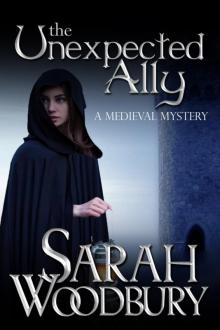 The Unexpected Ally
The Unexpected Ally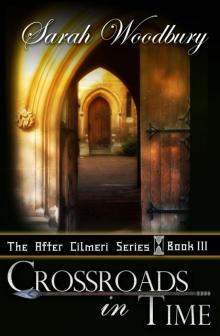 Crossroads in Time (The After Cilmeri Series)
Crossroads in Time (The After Cilmeri Series)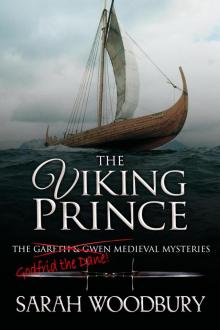 The Viking Prince
The Viking Prince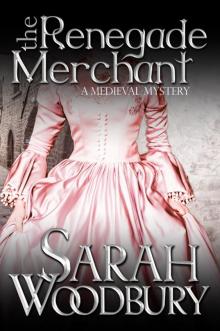 The Renegade Merchant
The Renegade Merchant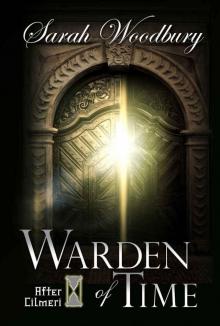 Warden of Time (The After Cilmeri Series Book 8)
Warden of Time (The After Cilmeri Series Book 8)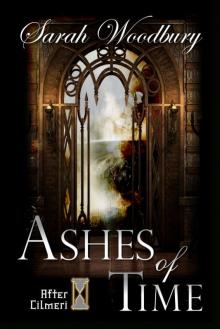 Ashes of Time (The After Cilmeri Series)
Ashes of Time (The After Cilmeri Series)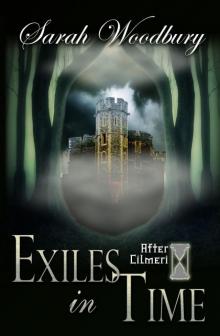 Exiles in Time (The After Cilmeri Series)
Exiles in Time (The After Cilmeri Series)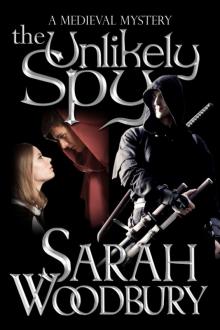 The Unlikely Spy
The Unlikely Spy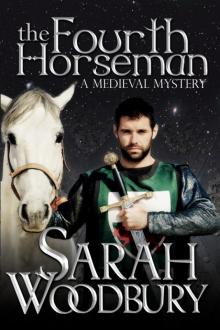 The Fourth Horseman
The Fourth Horseman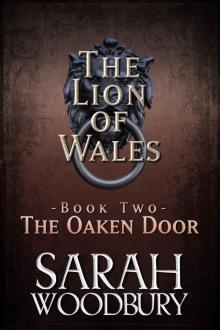 The Oaken Door (The Lion of Wales Book 2)
The Oaken Door (The Lion of Wales Book 2)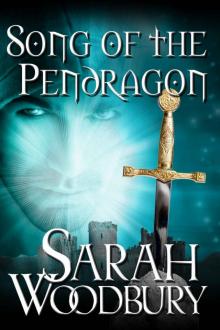 Song of the Pendragon (The Last Pendragon Saga Book 3)
Song of the Pendragon (The Last Pendragon Saga Book 3)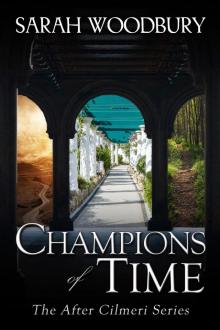 Champions of Time (The After Cilmeri Series, #13)
Champions of Time (The After Cilmeri Series, #13)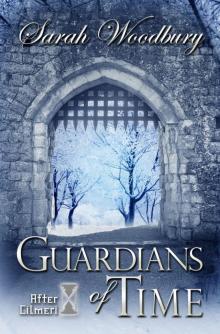 Guardians of Time
Guardians of Time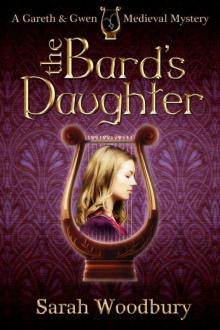 The Bard's Daughter (A Gareth and Gwen Medieval Mystery)
The Bard's Daughter (A Gareth and Gwen Medieval Mystery)